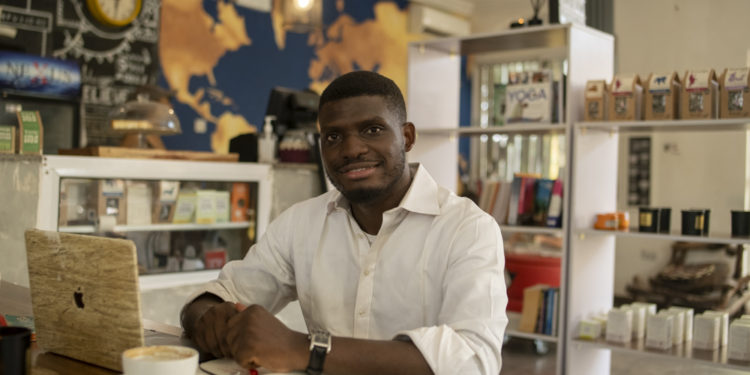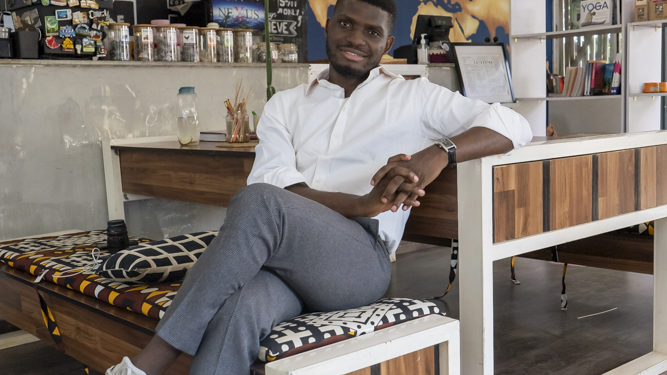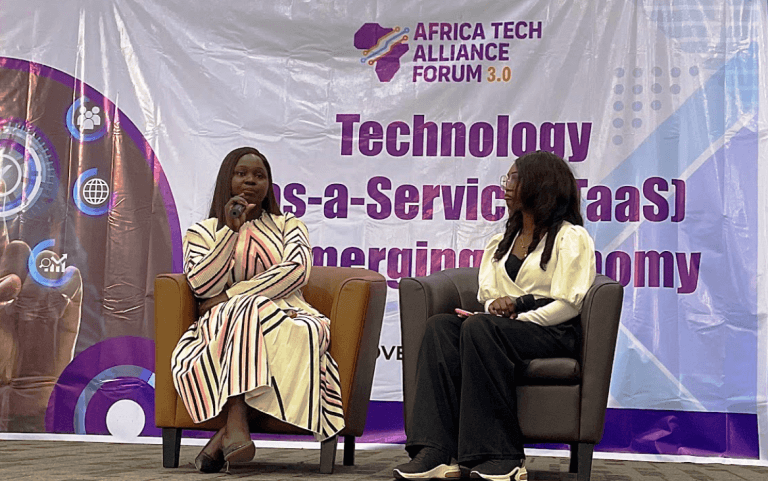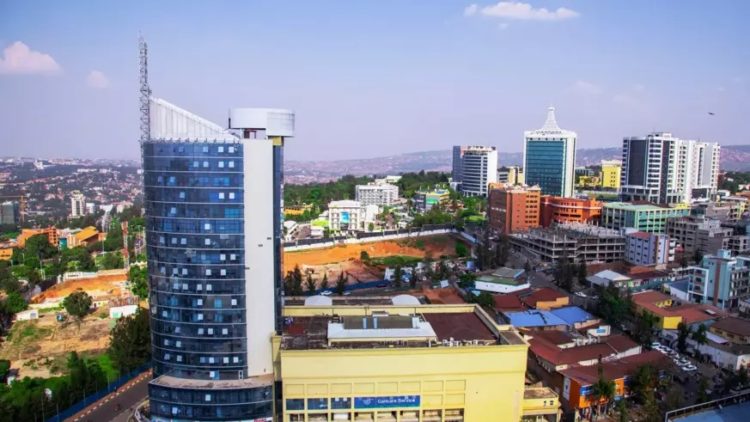Norebase is developing a solution that will handles everything a brand needs to launch in a new African country

In 2019, a few months after the African Continental Free Trade Deal (AfCFTA) was signed, CcHUB hosted some African tech and creative industry professionals in Kigali, Rwanda, to discuss how the newly signed agreement could benefit the tech and creative ecosystem.
Tola Onayemi, a young lawyer from Nigeria, was among the 80 participants from 30 countries in that room. At the Nigerian Office for Trade Negotiations, Onayemi was the assistant chief negotiator and head of trade remedies. So, at the time of the summit, he was in the fore, leading Nigeria’s technical discussions for the AfCFTA.
At the heart of the discussion were trade facilitation issues, and everyone in the room, big and important in their own right, knew Onayemi as the go-to kid for the subject; he was the exact intersection of technology, law, and trade—the three components that make up a successful cross-border business.
Before moving on to manage the AfCFTA, Onayemi had developed the Nigerian Ease of Doing Business Policy and advised the Nigerian vice president on industry, commerce, and investment. He knew what the continent required—Africa needed to be a “country” to compete in the global market.
After the Kigali meeting, COVID-19 arrived, and the impetus slowed.
However, when governments began to loosen the lockdown and open their borders in late 2020, entrepreneurs began to call out to Onayemi for assistance in their growth attempts. He handled a few of these as ad hoc services and then began to see his concept of “Country Africa” blossoming like a morning flower—slow but substantial.
“People would approach me and say, ‘You’re a lawyer who also knows a lot about commerce and technology; you’re the perfect advisor and middleman to help us get into any market.’ So I assisted them in expanding,” Onayemi told TechCabal. “And then, gradually, I realized there’s something here.” So I began talking about it with Tope Obanla , my co-founder, to see if there was anything here we could construct.”

In June 2021, Onayemi and Obanla were finally ready to turn Africa into a country with their tradetech venture Norebase, a one-stop-shop digital platform enabling African enterprises to expand, file trademarks, and patent intellectual property (IP) across the continent.
The startup manages the entire process of launching a business in a new African country. It’s a one-stop shop for all business registrations, bank account openings, compliances, license acquisition, and other legal procedures.
Expansion across Africa can be time-consuming. Despite the fact that identical issues exist across the continent, there are simply too many hurdles that stymie the process. There are legal frameworks, linguistic obstacles, arrogant policies, cultural gaps, and other factors to consider.
Although most of these barriers cannot be removed quickly, Norebase is developing a node that will relieve business owners of the difficulty of scaling these impediments.
At its foundation, the company assists African companies in expanding, but as they take on more enterprises, they realize they must do more than just assist them in entering a new market.

“Now, we don’t just want to help businesses launch in a new market; we also want to help them operate and scale across Africa quickly and safely without experiencing all of the fractions of doing so,” said Onayemi, who was also the founding legal partner of Future Africa, an Africa-focused early-stage venture fund.
Essentially, Norebase aspires to be the partner that a company would require in order to operate in a new African market. It only takes a few mouse clicks.
According to Onayemi, most African firms need to expand, not desire to. Most African countries do not have a large enough population to support a unicorn or a massively successful firm. As a result, the company is expanding into new markets.
“You need to be in several markets because there is a disposable income disparity in most of them.” In Nigeria, for example, after doing Lagos, Abuja, and Port-Harcourt, you’re kind of trapped thinking about where to get your next audience. What if you can’t locate it? Then you’ll look into Accra or Nairobi.”
Onayemi also believes that African enterprises should expand in order to lessen their vulnerability and risk of being thrown off course by unfavorable legislation. “It’s a survival strategy and a technique to obtain an advantage in unfavorable marketplaces.” What happens, for example, if Nigeria prohibits the sale of bitcoin or motorcycles?”
Large corporations that have expanded into new areas have in-house expansion teams that keep their learnings confidential. This means that other businesses, particularly smaller ones operating on a shoestring budget, will have to make the same mistakes before getting it right. Norebase is addressing the issue of trial and error caused by the information silo.
Norebase, like any other company in the African market, offers both online and offline solutions. Its online expansion service is available in Nigeria, Ghana, South Africa, and Kenya. In addition to these four nations, it extends its offline offer to Senegal, Egypt, Rwanda, Zimbabwe, Tanzania, and others. According to Onayemi, while you can only use their expansion service in a few nations for the time being, you may submit trademarks and intellectual property in all 55 African countries.
The company generates revenue by collecting a base fee that varies depending on the country of expansion. According to Onayemi, they are consistently lowering their prices for their clients. Norebase’s goal as a venture-backed impact firm is to first ensure that enterprises enter new markets.
“What you see is that we’re always bringing down pricing, so, for example, our price for Kenya between March and December last year was dropped by over 70%.”

According to Onayemi, the goal of their pricing strategy is to reach to the point where incorporating in any African country costs no more than $500. Patricia and Brass, among others, have benefited from the startup’s assistance in expanding into new markets.
Norebase is solving a large problem involving numerous government bureaucracies, and it aspires to establish a climate in which founders are not limited to their own countries. Consider a Kenyan deciding to construct in Egypt and vice versa without regard for obstacles.
Consider Norebase as a tool that will help AfCFTA achieve its goal of creating a unified African market. Onayemi believes that this will motivate African countries to develop policies that benefit local firms.
Norbase’s objective is lofty and appears to be impossible given the precedent set by current intra-African commercial and information sharing. However, the startup is loaded with tenacious individuals that are unwavering in their determination to make this work.
“In order to achieve our lofty goal, we’re committed to creating a culture that draws talent from the world’s largest corporations,” Onayemi added. “We look for persons that have a leadership mindset.” Individuals who are founders in their own right.”
According to Onayemi, he and his team are constructing Africa’s most significant company, and if they succeed, the entire African tech and economic ecosystem benefits. In addition to being a trade leader, his co-founder is a former Goldman Sachs associate and a Microsoft senior engineer.
Finally, while he did not specify what they are, Onayemi suggested that the company is launching new solutions that will “alter the game,” particularly for fintech startups. The term “changing the game” seems like an entrepreneur pitching investors, yet Onayemi and his track record are enough to believe him and await new items.







